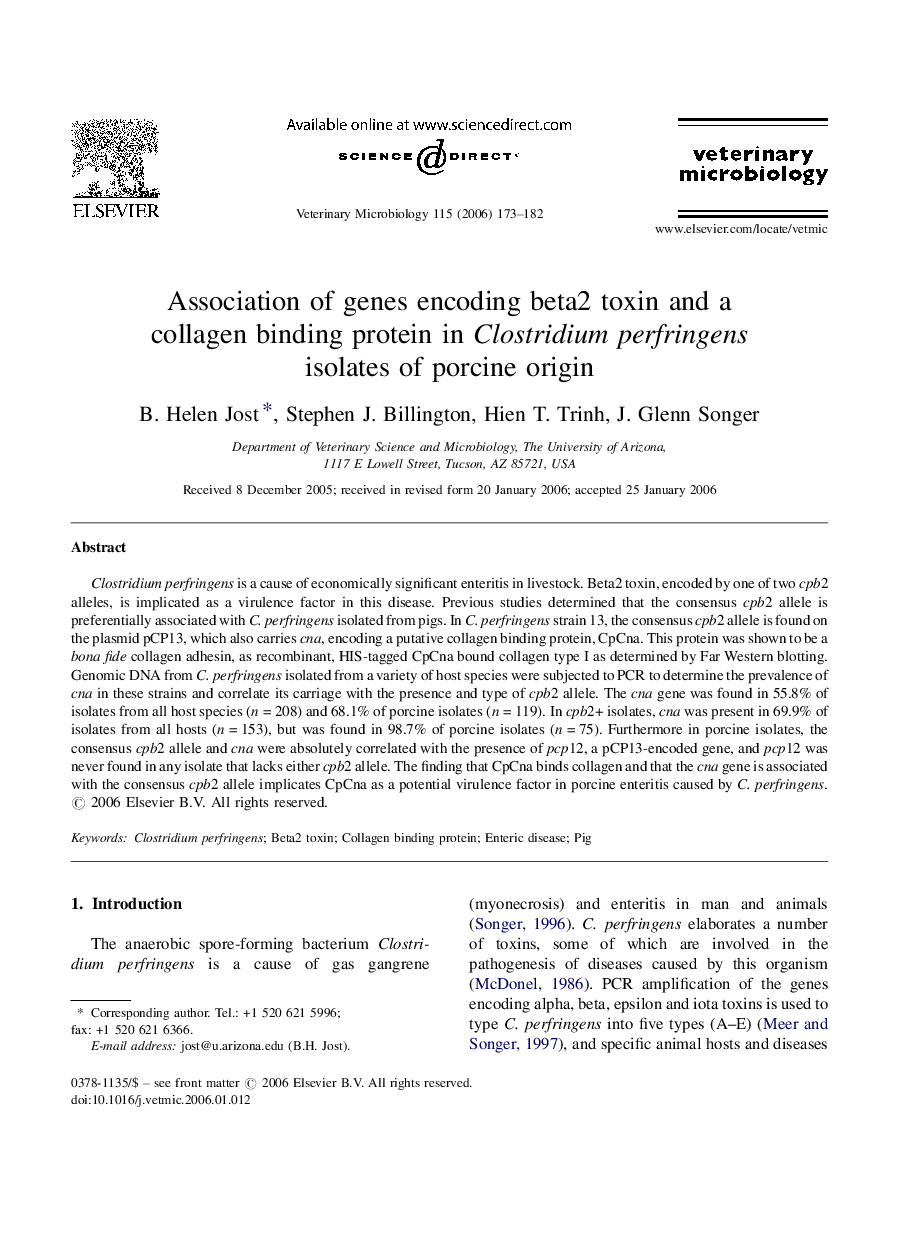| Article ID | Journal | Published Year | Pages | File Type |
|---|---|---|---|---|
| 2469706 | Veterinary Microbiology | 2006 | 10 Pages |
Clostridium perfringens is a cause of economically significant enteritis in livestock. Beta2 toxin, encoded by one of two cpb2 alleles, is implicated as a virulence factor in this disease. Previous studies determined that the consensus cpb2 allele is preferentially associated with C. perfringens isolated from pigs. In C. perfringens strain 13, the consensus cpb2 allele is found on the plasmid pCP13, which also carries cna, encoding a putative collagen binding protein, CpCna. This protein was shown to be a bona fide collagen adhesin, as recombinant, HIS-tagged CpCna bound collagen type I as determined by Far Western blotting. Genomic DNA from C. perfringens isolated from a variety of host species were subjected to PCR to determine the prevalence of cna in these strains and correlate its carriage with the presence and type of cpb2 allele. The cna gene was found in 55.8% of isolates from all host species (n = 208) and 68.1% of porcine isolates (n = 119). In cpb2+ isolates, cna was present in 69.9% of isolates from all hosts (n = 153), but was found in 98.7% of porcine isolates (n = 75). Furthermore in porcine isolates, the consensus cpb2 allele and cna were absolutely correlated with the presence of pcp12, a pCP13-encoded gene, and pcp12 was never found in any isolate that lacks either cpb2 allele. The finding that CpCna binds collagen and that the cna gene is associated with the consensus cpb2 allele implicates CpCna as a potential virulence factor in porcine enteritis caused by C. perfringens.
